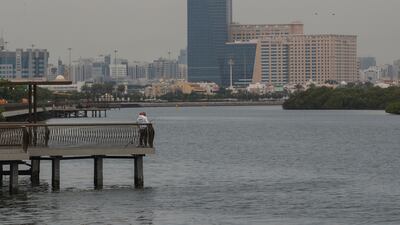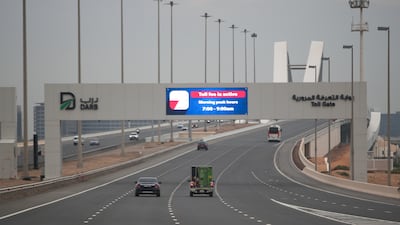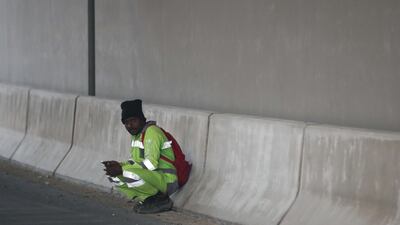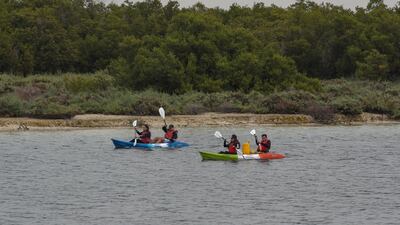The UAE is set for more heavy rain and a "significant" drop in temperatures this week after a wet weekend across parts of the country.
The National Centre of Meteorology forecast downpours in Fujairah and Ras Al Khaimah, with light rain for Dubai, on Wednesday.
The weather centre said it would remain dry in Abu Dhabi for the rest of the week but cloudy on Wednesday.
Temperatures will fall steadily as the week goes on, with chilly evenings in store.
The mercury will peak at 27°C in Dubai and Abu Dhabi on Tuesday, but will drop to 21°C during the day in Fujairah on Friday.
Winds are set to reach 40kph, leading to dust storms in some areas.
In its latest five-day bulletin, the NCM said rain on Wednesday would be accompanied by "a significant decrease in temperatures".
Yellow and amber alerts were in place at the weekend as downpours led to flooding in some areas.
On Sheikh Zayed Road in Dubai, floodwater covered parts of the 12-lane motorway, leading to tailbacks. Nationwide, police urged drivers to be cautious.
January and February are typically the wettest months in the Emirates.
But records were broken last summer when floods brought Ras Al Khaimah and Fujairah to a standstill, leading to seven deaths and hundreds being rescued.
The NCM said the UAE averages 11.8mm of rainfall during January.
The highest January temperature recorded to date was 36°C, in 1983 and 1991, with a low of minus 2°C in Raknah, Al Ain, in 2021.







